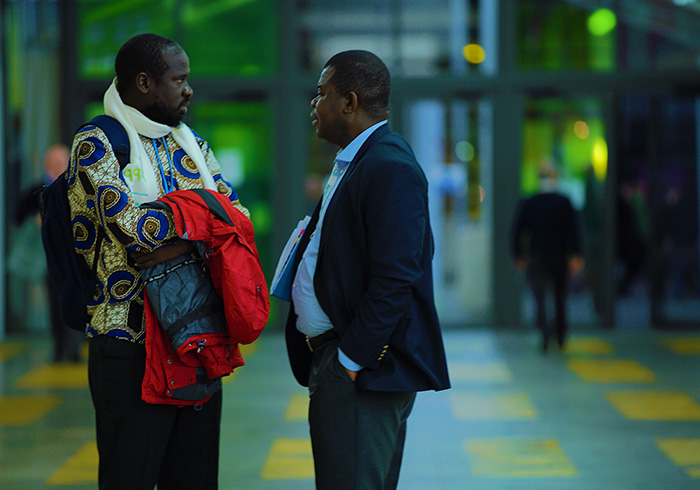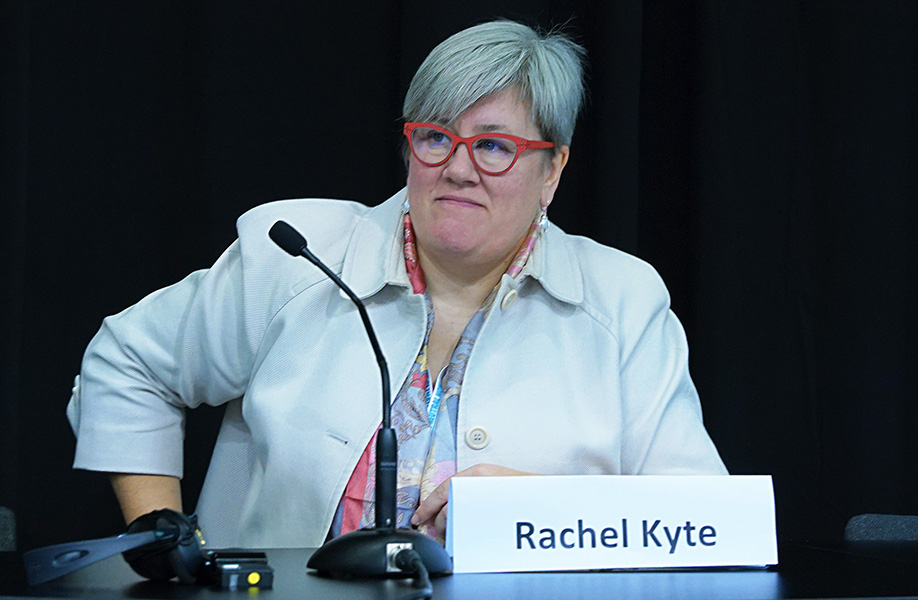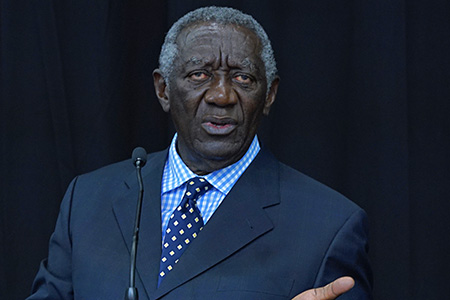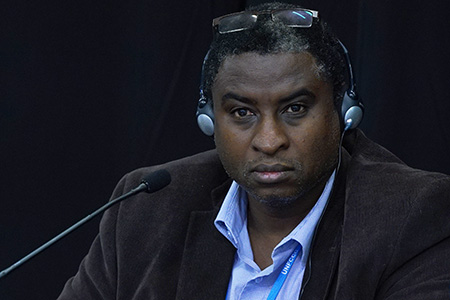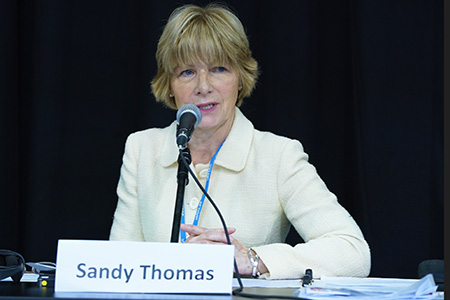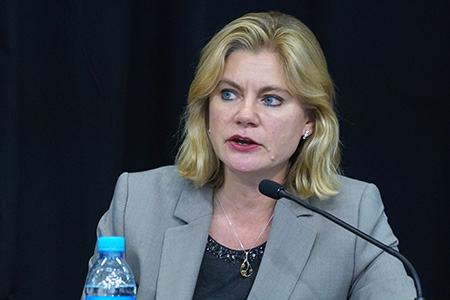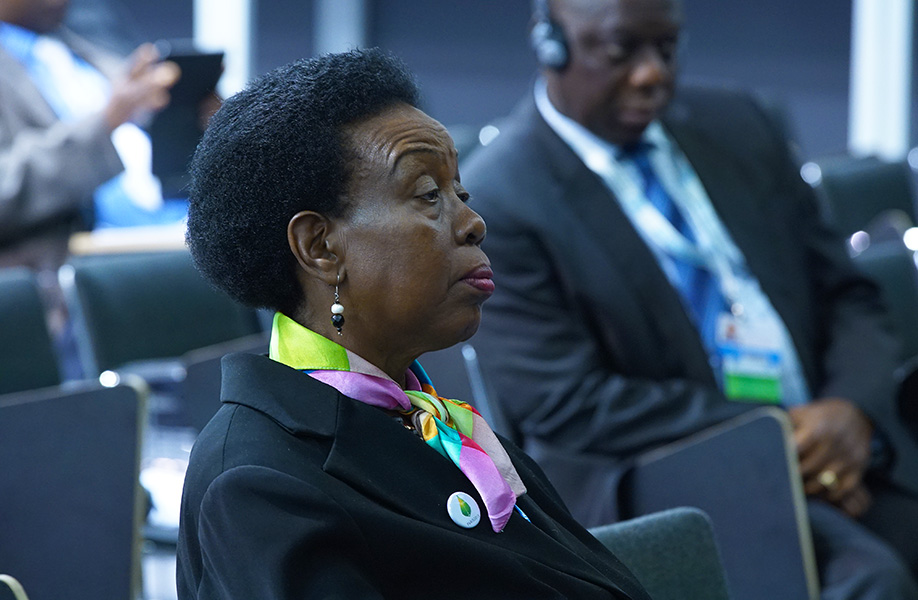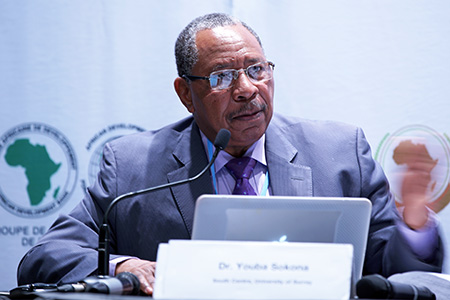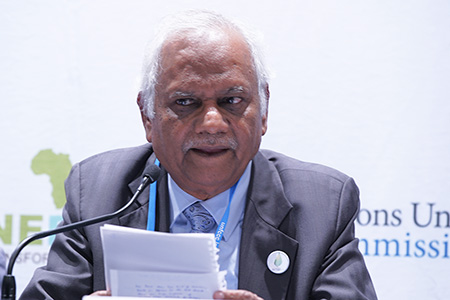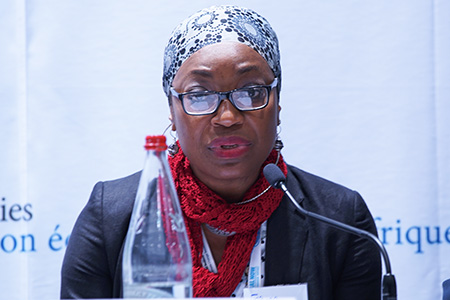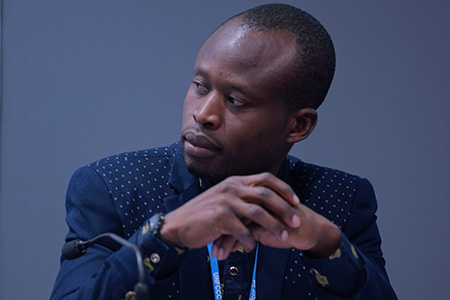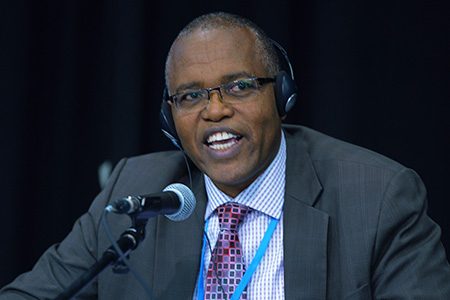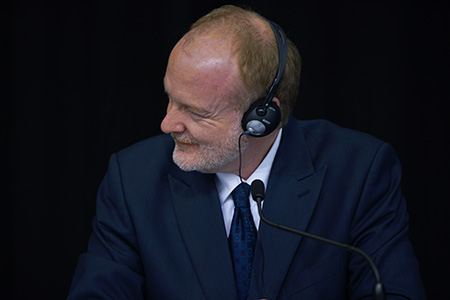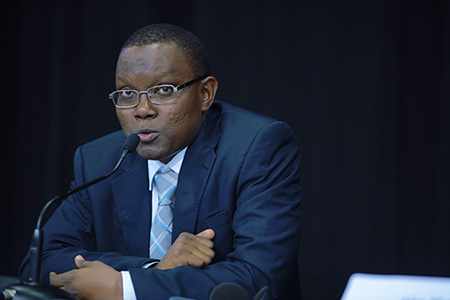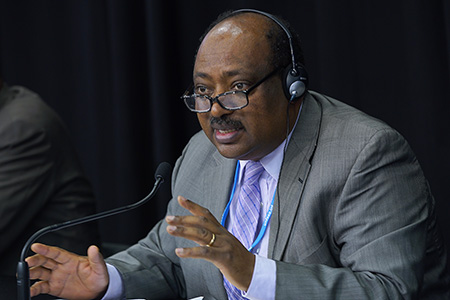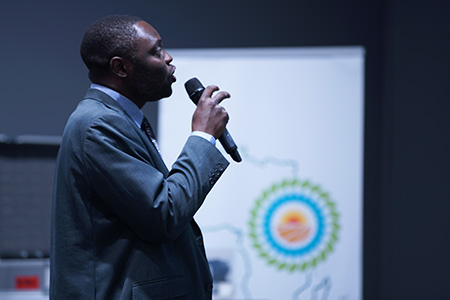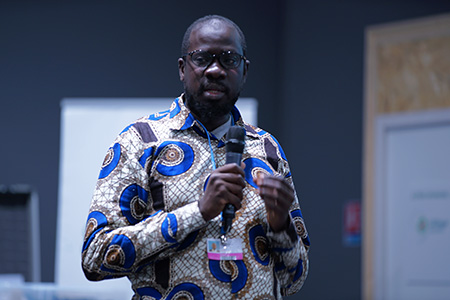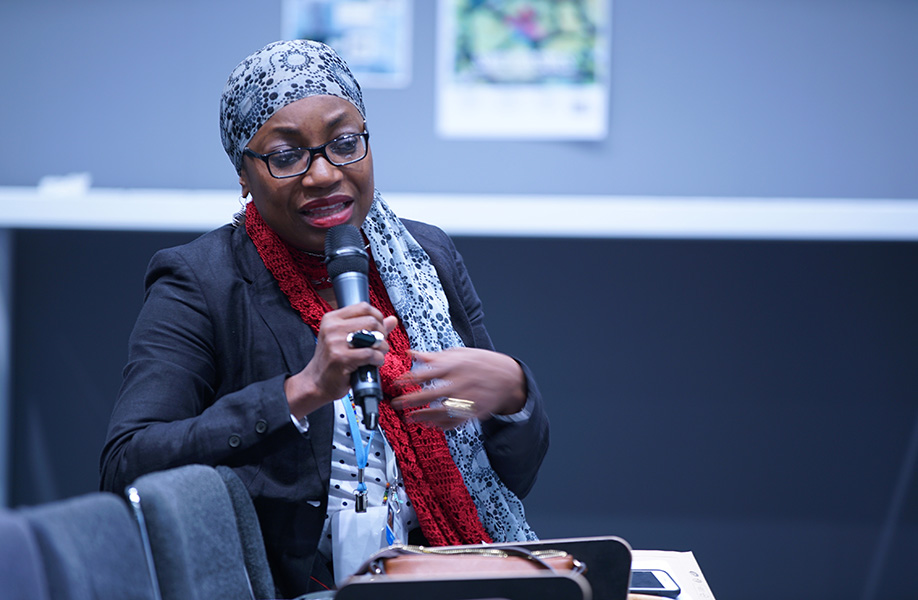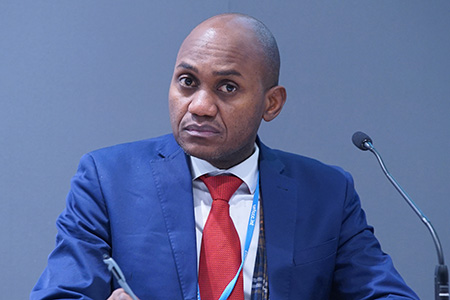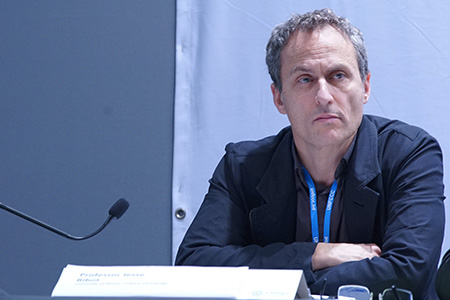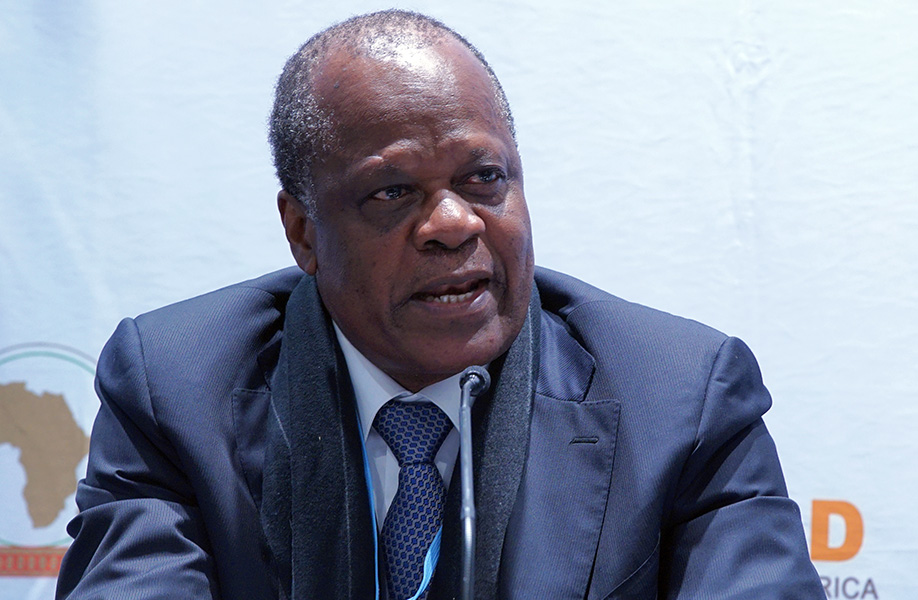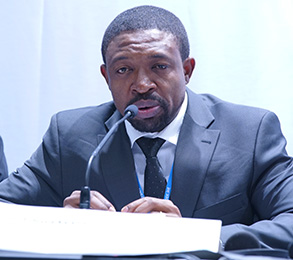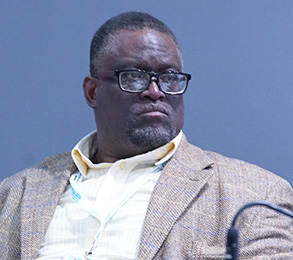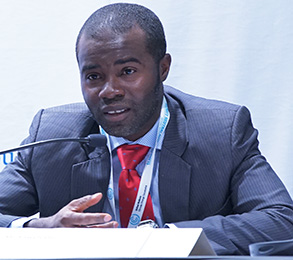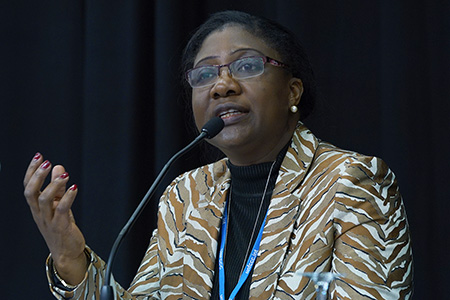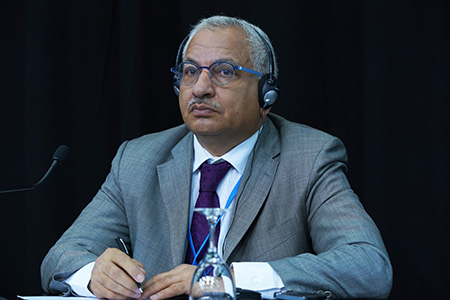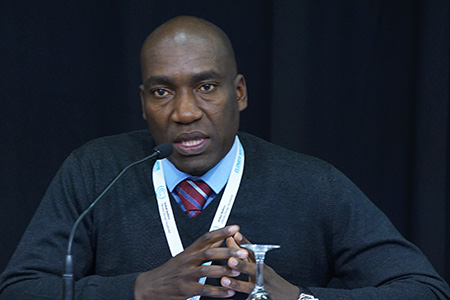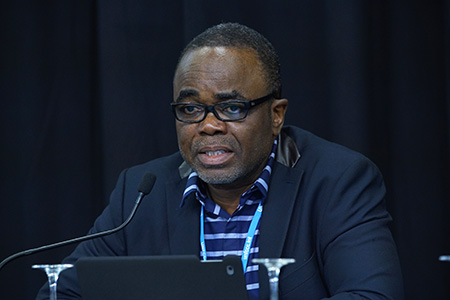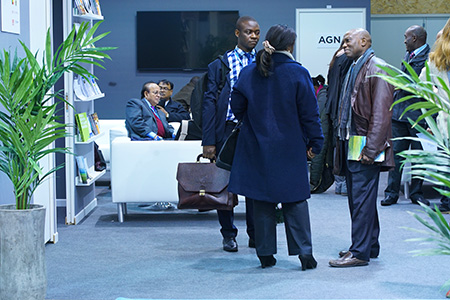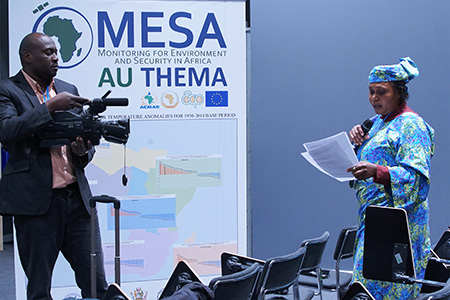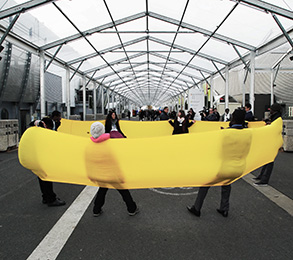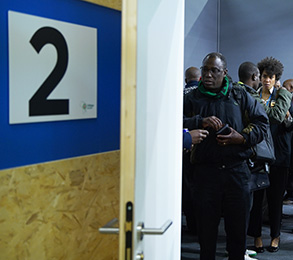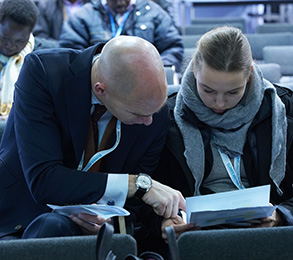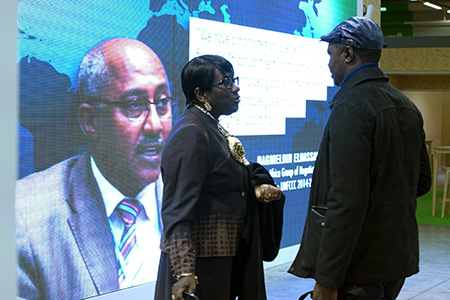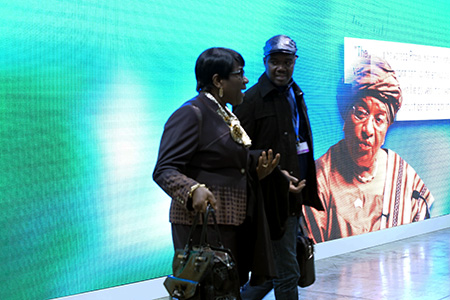Language:ENGLISH | FRANÇAIS |
||
Receive ENB+ Meeting Reports |
||
|
Receive our ENB+ bulletins and reports by email: |
||

| Follow @enbclimate | ||

Loading... |
||
|
Receive emailed updates with the news articles above plus related information and announcements from our CLIMATE-L community mailing list: |
||
|
The following side events were covered by ENB+ on Saturday, 5 December 2015:
|
||
|
IISD Reporting Services, through its ENB+ Meeting Coverage, is providing web coverage, including photos and video, of selected events from the Africa Pavilion at COP 21. | ||
Climate-Smart Food Systems for Enhanced NutritionPresented by: Global Panel on Agriculture and Food Systems for Nutrition
|
This event was moderated by Sandy Thomas, Director, Global Panel on Agriculture and Food Systems for Nutrition, and explored the policies needed to achieve food and nutrition security in the face of climate change. |
||
|
|
|
|
|
|
||||
Will Paris Pave the Way for Africa's Prosperity and Transformation?Presented by: The Energy and Resources Institute (TERI)
|
|
This event focused on the question of whether or not Paris will pave the way for Africa’s prosperity and transformation and was moderated by Shri Prakash, Distinguished Fellow, TERI. |
||
|
|
|
||||
How Do We Mobilize Climate Finance for Green Growth in Africa? Presented by: Global Green Growth Institute (GGGI)
|
|
|
This session explored the best ways to mobilize climate financing for green growth in Africa. Mahua Acharya, Assistant Director-General, GGGI, introduced the panel and framed the discussion around finding ways to finance projects and infrastructure that not only provide sustainable development but also help reach climate mitigation targets. Admasu Nebebe, Head, CRGE Facility, Ministry of Finance and Economic Cooperation, Ethiopia, explained that the Facility is a unique instrument to mobilize public, private, local and international climate finance by blending resources and serving as a convergence point between different actors. He underscored that it is essential to have a clear vision for the future, such as Ethiopia’s plan to use green growth to drive economic progress and graduate from least developed country status by 2025. Alex Mulisa, Coordinator, FONERWA, Rwanda, said that his country’s commitment to green growth is borne out of the challenges it faces and a desire to avoid imitating the unsustainable growth patterns of other countries. He noted Rwanda has already mobilized US$100 million by targeting the private sector and non-government organizations and he highlighted the importance of partnerships. Souleymane Diallo, Deputy Minister, Ministry of the Environment and Sustainable Development, Senegal, said that Senegal has been a full member of GGGI since 2014 and has set up its own national climate fund. He introduced the Emerging Senegal Plan which aims to ensure a responsible development path and sets out priority areas for the country. Following the opening statements, Miles Austin, Head of Green Investment Services, GGGI, addressed questions to panelists on: where and what kind of additional support is needed; how to unlock technology transfer; and using the private sector as an engine of change. Alex Mulisa talked about the benefits of a knowledge-based society. On capacity building, he said it is crucial for interventions to be targeted because there are many areas that Rwanda can handle independently. He also highlighted the need for African countries to learn from each other and tap into the African diaspora and the resources it offers. Souleymane Diallo underscored vision and leadership as success factors and noted the need for support in capacity building. He said it is important to have accredited institutions such as national banks in order to receive more financing. Admasu Nebebe said GGGI’s support in capacity needs assessment has been useful to determine areas that require technical assistance. He echoed comments on the importance of South-South cooperation and highlighted partnerships with countries like Vietnam. Some of the discussion centered on the Green Climate Fund (GCF), with Alex Mulisa noting the importance of having specific, bankable projects that can be presented on an on-going basis. Admasu Nebebe noted the need for direct access to climate finance by fully using public finance throughout the project cycle and underscored the importance of enabling environments. Responding to a question from the audience on attracting private sector finance, Alex Mulisa noted that the Rwanda Development Board has helped increase the perception of ease of doing business in the country. |
||
|
|
|
||||
Climate Research for Development in Africa(CR4D)Presented by: UN Economic Commission for Africa (UNECA)
|
|
This session focused on the CR4D programme and also included discussion about improving interconnectedness between climate science, services and policy to improve co-generation, quality, access and dissemination of climate information services. Wilfran Moufouma-Okia, Climate Science Expert, UNECA, said that understanding the dynamics of the climate in Africa is crucial to be able to adapt. For historical reasons, he said, Africa lacks an observational network as well as human, science and technological capacity. Climate data is useful, he said, not only for managing risk but also for taking advantage of opportunities. He highlighted the importance of the Africa Climate Conference 2013 held in Arusha, Tanzania, that helped establish the CR4D as a platform bringing together institutions and stakeholders to share knowledge and address challenges regarding climate research and information. The CR4D Secretariat, he said, is based at UNECA and has a structure incorporating a Scientific Advisory Committee that sets priorities. He noted that the three intervention areas of CR4D are: to package and disseminate information; provide quality analysis for decision support and management; and spur informed decision making through awareness raising and advocacy. Ousmane Ndiaye, Head of Research and Development, National Agency for Civil Aviation and Meteorology, Senegal, talked about dissemination of climate and weather information to farmers. He described the incredibly wide variation in rainfall throughout West Africa, a point he underscored by noting that a single weather event in Burkina Faso in 2014 produced more rainfall than the rest of the days of the year combined. Although advanced climatic data is essential, he said, it is absolutely crucial to build on local knowledge by talking to farmers and using their traditional familiarity with land and weather as an additional indicator in models. He highlighted the importance of using community radios to share weather and climate information because they operate in the local languages. Andre Kamga Foamouhoue, Project Manager, ACMAD, said that CR4D should consider optimizing downscaling tools. He said the CR4D should inform African negotiators at COP 21 about the expected impacts of climate change on the continent. He noted that in particular it is essential to understand what 2 degrees Celsius warming means in terms of the start of the farming season and rainfall variability. During discussion, audience questions focused on: the impact of migration due to climate change; the way to convey information to policymakers; the lack of input from African science and the problem that much of science taking place in Africa happens in a non-African paradigm; the importance of building policy-relevance into all programs; and how to generate political will. Fatima Denton, Director, Special Initiatives Division, UNECA, offering a comment from the audience, said when Africans come to the climate science scene the parameters are often already set. She said that adaptation and mitigation are two response strategies that have become institutionalized by the UNFCCC but that Africans were not there formulating those strategies from the beginning. Therefore, she said, there is a need to find a way to “own the research agenda.” She illustrated this point using the example of the IPCC, noting that the chapters and their themes are already set and it is rare to be in the room at the agenda setting table. African scientists, she said, are simply assigned a chapter to work on. Part of addressing the problem has to come from African scientists who can claim the research leadership, she said. Ousmane Ndiaye noted that CR4D can do more to enable young scientists in Africa to begin publishing their work in journals, and underscored the need for more academic journals in Africa along with a pool of African peer-reviewers in order to build a body of work that is heard, respected and utilized. |
||
|
|
||||
Other Events
Non-Carbon Benefits of REDD+ in AfricaPresented by: UN Economic Commission for Africa (UNECA)
|
|
|
|
|
|
|
|
||||
Regional Flagship Programmes: Africa's Green Growth StrategiesPresented by: The New Partnership for Africa's Development (NEPAD)
|
|
|
|
|
||||
Around the Venue
|
|
|
|
|
|
|
|
The Africa Pavilion @ COP 21 Bulletin © <enb@iisd.org> is a special publication of the International Institute for Sustainable Development (IISD). This issue has been written by Dina Hestad and Brett Wertz. The Digital Editor is Liz Rubin. The Editor is Tomilola Akanle Eni-ibukun, Ph.D. <tomilola@iisd.org>. The Director of IISD Reporting Services is Langston James “Kimo” Goree VI <kimo@iisd.org>. Funding for coverage of the Africa Pavilion at COP 21 has been provided by the UN Economic Commission for Africa (UNECA). The opinions expressed in the Bulletin are those of the authors and do not necessarily reflect the views of IISD and funders. Excerpts from the Bulletin may be used in non-commercial publications only with appropriate academic citation. For permission to use this material in commercial publications, contact the Director of IISD Reporting Services at <kimo@iisd.org>. Electronic versions of issues of the Africa Pavilion @ COP 21 Bulletin can be found on the IISD Reporting Services website at http://enb.iisd.org/climate/cop21/cdafrica-ap/. The IISD team at the Africa Pavilion at COP 21 can be contacted by e-mail at <brett@iisd.org>. |
||
